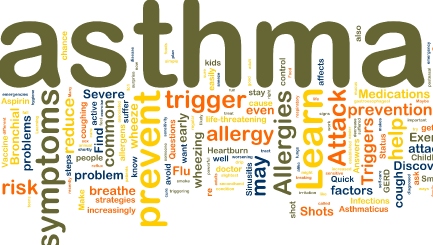
Fortunately many people who develop asthma as a child or a young adult often outgrow it by the time that they get older. However, new research suggests that sufferers’ lungs can be affected for a long time – even after their symptoms have gone away completely.
A team of researchers analysed lung data from over 3,000 people over the age of 45 from all across the United States. During the study they compared the structure and function of the lungs of those that had a history of childhood- or young adult-onset asthma against those who had no history of asthma.
The results showed a strong link between having asthma as a child or young adult, and having a reduced lung capacity and function as an adult. On average, people who had childhood asthma had 2,365 millilitres less air in their lungs than those who did not have childhood asthma.
As an interesting comparison, the study participants who had a history of smoking but no history of asthma only had 282 millilitres less air in their lungs than those who had never smoked. This suggests that asthma in childhood is far more damaging to your lung capacity and function even than smoking.
Additionally having asthma early in life was also associated with having narrower airways and thicker lung walls. This all suggests that those people who had asthma but have grown out of it still need to monitor their breathing health and take care.
